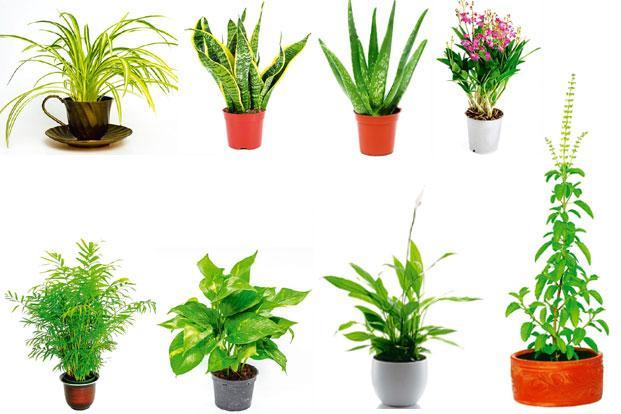Eight plants that can help you counter pollution, improve the air quality in your home and office, and breathe better
Most of us try to block outdoor pollution by closing doors and windows and by using air conditioners and air purifiers. But a simpler solution would be to opt for a few plants, says Anand Sankar, co-founder of Springfinity, a start-up that sells garden kits for urban apartments.
“The quality of air is one of the biggest problems we face in our times, and the simplest solution is to invite nature back into our homes,” says Sankar, who is based in Gurgaon, near Delhi.
But that’s not the only reason you should grow plants around you, in offices and homes. A growing body of research points to mental, physical and even performance benefits from doing so. “Plants and flowers are programmed into our DNA,” says Sangram Jagtap, vice-president, Indian Nurserymen Association. “The sight of plants and flowers makes us feel calm and relaxed,” says Jagtap, who runs a nursery in Pune.
Improves work performance
A Stanford University, US, study published in the Proceedings Of The National Academy Of Sciences journal in May found that mental illness in urban cities can be reduced by 90 minutes of exposure to nature every day. The brain scans of participants who walked for 90 minutes amid trees and shrubs showed reduced activity in an area associated with risk of mental illness.
A Harvard University study, published in the Environmental Health Perspectives journal in October, found that people who worked in well-ventilated offices, with below-average levels of indoor pollutants and carbon dioxide, have higher cognitive functioning scores—and, therefore, better reasoning power, attention span and memory. The study looked at the impact of ventilation, chemicals and carbon dioxide—that make indoor air quality poor—on cognitive function in employees.
“We spend 90% of our time indoors, yet indoor environmental quality and its impact on health and productivity are often an afterthought,” writes Joseph Allen, director, Healthy Buildings Programme, Harvard Center for Health and the Global Environment, US, and lead author of the study, in a press release by Harvard. “These results suggest that even modest improvements to indoor environmental quality may have a profound impact on the performance of workers.”
Harmful volatile compounds released from furniture, painted surfaces and everyday cleaning products make the quality of indoor air pretty problematic. “Air-conditioned spaces can contribute to sick-building syndrome, leading to problems like headache, nausea, sore and itchy eyes, and even loss of concentration. All of this can be treated with just a few plants around the office,” says Seema Singh, chief clinical nutritionist at the Fortis Flt Lt Rajan Dhall Hospital in Vasant Kunj, Delhi. Once office spaces breathe free, employees can concentrate better. “You perform better and get better results if you have nature around,” says Anirudh Garg, chief executive officer at the Institute of Urban Farming and Sustainability in Moradabad, Uttar Pradesh, which encourages urban residents to grow their own food. “Your memory performance and attention span increase, and you tend to have better interpersonal skills and more compassion for fellow workers,” he adds.
Makes you fitter
Plants influence not just mental health but physical health too. “Indoor plants decrease the incidence of dry skin, colds, sore throat and dry cough,” says Suvarna Pathak, dietitian coordinator at the Nanavati Super Speciality Hospital in Mumbai. An avid gardener, she grows tulsi (holy basil), ajwain (carom seeds), coriander and wheatgrass in her kitchen garden and rose, jasmine and money plant in her balcony. “They maintain blood pressure, eliminate stress and skin irritation, flush out toxins from the air and improve your lung capacity with a personal oxygen supply,” she says.
MONEY PLANT
A plant that can be grown in discarded bottles and looks pretty as a picture in hanging pots, on bathroom sills and kitchen windows, the money plant feeds voraciously on pollutants. “Money plant sucks up formaldehyde and other building pollutants and absorbs benzene, an air pollutant found in car exhausts that can cause dizziness, drowsiness and headaches,” says Seema Singh. The plant grows well in the shade.
SPIDER PLANT
One of the cheapest plants to grow at home, the spider plant has thin and narrow leaves that fall limp on all sides, making it look like an inverted spider. “It counters air pollutants like benzene, formaldehyde, carbon monoxide and xylene,” says Sangram Jagtap. The plant is easy to grow in a pot, and can also be suspended from a window; it looks pretty and adds moisture to the atmosphere. “It does not require much sunlight, so it can be grown in your drawing room,” says Suvarna Pathak.
Read the complete article at livemint.com



